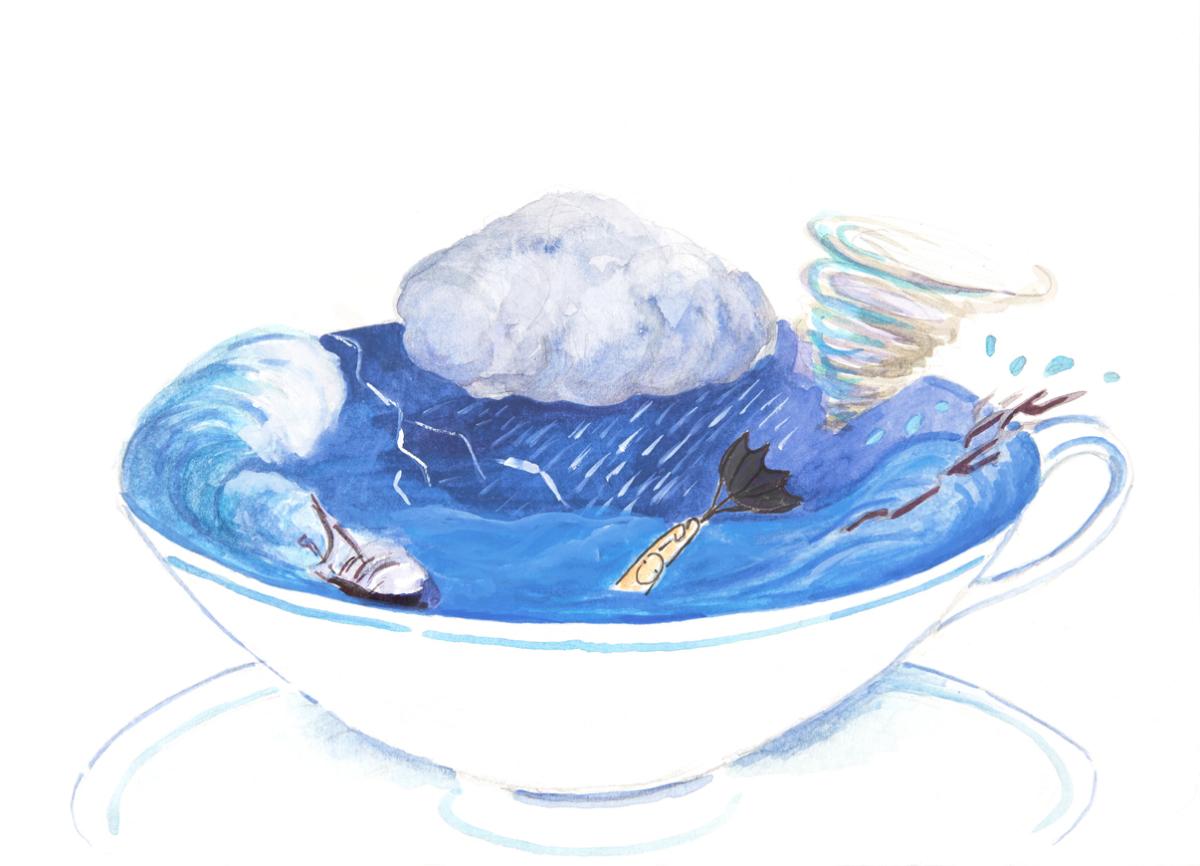How Climate Change Might Impact Cold Weather Events
By: John A. Lanier

Audio File
There is some healthy scientific debate about whether extreme cold weather events like what we just experienced are made more likely by global warming. To understand why, I explain what a polar vortex is, and how it can cause bomb cyclones when it is disrupted.
Happy New Year! As I wrote two weeks ago, I hope you all had a chance to rest and recharge during the holidays. Had I been paying a bit more attention to the weather forecasts at the time, I also would have wished you warmth and pipes that wouldn’t burst in your homes. My oh my was it cold in the United States, and in the Atlanta area., We had persistent days below freezing. We aren’t quite accustomed to that, and I saw plenty of reports of power outages and frozen pipes in Georgia. It wasn’t what we wished for in the lead up to Christmas. That said, no matter what might proliferate on the bird app or other social media platforms, the cold snap didn’t disprove the fact that our planet is warming. To the contrary - some research suggests that more cold events like these could happen as we make our climate weirder.
Meteorology’s Fun Terminology
First, let’s start with the basic meteorology of what happened a couple of weeks ago. At each end of the Earth, a high-altitude band of jet stream winds circles the north and south poles. Each is called a polar vortex, and they generally keep the extremely cold temperatures confined to the arctic and antarctic regions of our planet. During the summer months, a polar vortex weakens, and it then strengthens again in the winter months.
As has always been the case though, the polar vortex can shift. It doesn’t always stay in a tight band, and if the arctic polar vortex expands, it will pull its cold air southward. The resulting effect is colder temperatures, but also a lowering of atmospheric pressure as cold air masses slam into warmer air. These are the conditions for the creation of a storm. Sometimes, air pressure falls at an unusually rapid rate, and meteorologists call this phenomenon “bombogenesis” (which has to be the coolest word you’ll read today). They call the resulting storm a “bomb cyclone.”
That’s what happened over the United States two weeks ago, and the end result was pretty devastating. Flights were disrupted countrywide and typically warm regions of the country dealt with dangerously frigid temperatures. Even regions that know how to handle the cold ended up struggling, in particular Buffalo, New York, which saw 43 inches of snowfall in 48 hours and the loss of dozens of lives.
A Climate Theory on Cold Weather Event Attribution
After Hurricane Ian this fall, I wrote an Ecocentricity piece about how accurately we can attribute extreme weather events to climate change. While that blog was focused on the scientific understanding of the links between hurricanes and our warming planet, extreme event attribution also applies in the context of cold weather. In this case, the relevant question is whether human emissions of greenhouse gasses into the atmosphere are causing increasing or stronger disruptions in the polar vortices.
I won’t bury the lede here - the answer is that scientists don’t know for sure. This New York Times piece did a great job of unpacking the ambiguity here, but there is some compelling evidence suggesting that there is a human-induced impact. In particular, this 2021 study published in Science tried to establish that anthropogenic global warming is causing an increase in cold weather events due to polar vortex disruptions. We know for certain that the arctic is warming at a faster rate than the rest of the planet, and so the theory is that the average temperature differential between the arctic and northern midlatitude is diminishing. Some scientists believe that will make the polar vortex wobble more frequently. So even though the arctic isn’t as cold as it used to be, it might now send its relatively colder air southward on a more frequent basis.
We Might Be in for More Winter Weather
Again, we don’t know for sure that this is the case, and this is an example of healthy climate science debate. Further, as I labored to explain after Hurricane Ian, extreme event attribution isn’t about saying that climate change caused any one weather event. So no, I’m not saying that our holiday cold snap was caused by global warming.
I am, however, saying that it’s possible that such events might become more frequent as we cause our planet to warm. Remember, global warming refers to the average increase in temperature around the globe, and it does not mean that winter weather is going away. Though counterintuitive, it’s entirely possible that a warmer planet will mean more wintertime bomb cyclones and their accompanying destruction.
Ecocentricity is available weekly via email subscription. Click here to subscribe.
Ecocentricity Blog: In Thanksgiving for the People of Interface
Ecocentricity Blog: Bottle Deposit Bills and the New Technology That Can Make Them Work.

